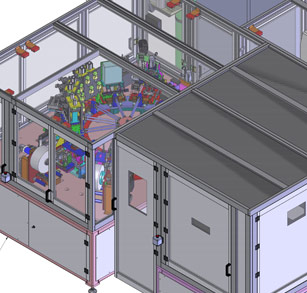Consultancy or manufacturer?
12 December 2017
Let us suppose you need a new product developed. You have 3 choices:
- Develop the product entirely in-house.
- Contract a consultancy to develop the product for you.
- Contract a manufacturer to develop the product for you.
In the past, companies would develop products themselves, entirely in-house. In recent years, that model has become less common as companies have reduced their internal R&D teams and looked for collaboration to bring new products to market.
In some markets, engineering and design consultancies have delivered development projects as a service. More recently, manufacturing companies have hired development engineers and set up development labs. This article discusses the pros and cons of each method. If you would like to know more, or have any feedback, do not hesitate to get in touch.
| Development strategy |
Pros |
Cons |
| In-house |
- Knowledge stays in-house.
- Limited IP leakage (other than employees leaving, indiscretions etc.).
- Lower cost if, and only if:
- Team and facilities are already in place, and
- Recruitment, training, site and maintenance costs are not in your budget, and
- Your team is fully utilised on productive projects at all times.
|
- Limited to the skillset of the existing team.
- Psychological inertia due to historical products and constraints.
- Large expense of keeping the team when they are not fully utilised.
|
| Consultancy |
- Highly skilled people available. This can make all the difference between a device passing tests and getting to market on time, or languishing in endless cycles of fire-fighting modifications. Removing even one redesign-revalidate cycle can easily save far more money than using a low-fee-rate manufacturer.
- Flexible team structures.
- Best option for an impartial view of which technologies would work best.
- Impartial as to which manufacturer to use: consultancies are the best option if you intend to have more than one manufacturing source for risk mitigation.
- Some consultancies, particularly those that specialise in your industry, will have relevant up-to-date experience from other projects.
|
- Can have high fee rates (particularly those with > 100 employees).
- Might not have experience in manufacturing. You can ask who will be working on the project, and what their experience is.
- Consultancies with internal projects might save the best ideas for themselves. Springboard does not have internal projects.
|
| Manufacturer |
- Fee rate can appear lower than consultancies.
- Sometimes, deep knowledge of a given manufacturing process.
- Good at making incremental changes to existing products, but not at innovating new products.
|
- It will be very difficult to transfer manufacture to another party because the design will be optimised
for their processes, and there will be no documentation or data necessary for transfer to another company.
- Manufacturing costs will be high because they will need to recover their costs and make more profit than otherwise to make up for Net Present Value, and their risk.
- Most manufacturers are trying to build up their own IP portfolio. This might mean they save the best ideas for themselves, or put some of their IP into your product.
- Limited to the skillset of the existing team.
- Psychological inertia due to knowledge of their existing processes. For example, if the company is very experienced with aluminium tooling, can you guess what your tools will be made from, even if steel tooling would have been a better option?
|


